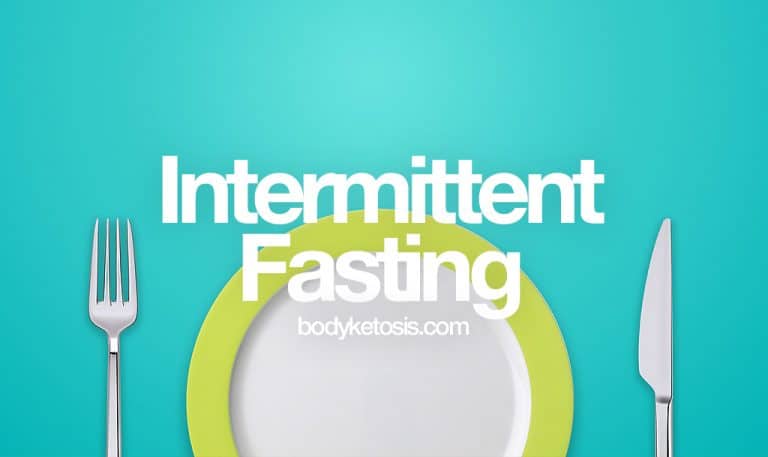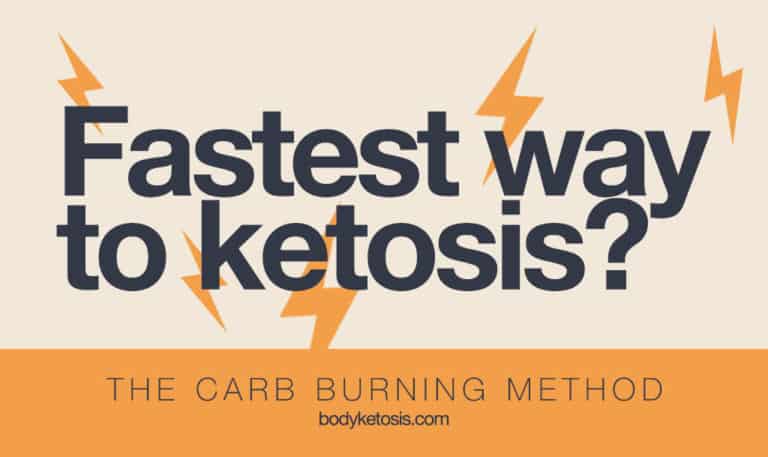Keto Diet Statistics in 2024 (Latest U.S. Data)
There’s no denying that the keto diet is popular, but the ride has been controversial.
Much of it is thanks to the diet culture 180-degree turn from fat-free everything to the rapid rise of high-fat and extremely low-carb diets.
Despite the criticism, the keto diet is well supported by scientific evidence. Here’s what the latest research tells us about keto diet statistics and facts.
Keto Diet Statistics
Highlights of ketogenic diet statistics:
- 4 in 10 Americans follow a diet or specific eating pattern.
- 12.9 million Americans follow the keto diet each year.
- Scientific evidence suggests that the keto diet is effective for weight loss.
- 46% of keto followers cheat on the keto diet.
- The #1 reason for quitting the keto diet is that it’s too strict.
- 70% of keto dieters don’t track their blood ketone levels.
- The global keto diet market size is valued at $10.22 billion.
- “Keto-friendly” product offerings are skyrocketing in retail and online.
1. 4 in 10 Americans follow a diet or specific eating pattern.
According to the International Food Information Council 2021 diet industry statistics, 39% of Americans (4 in 10) follow a diet or specific eating pattern. (1)
The research found that younger customers, those with a college degree, women, and parents are more likely to follow a diet.
| Dieting in 2021 | Dieting in 2020 | Dieting in 2019 |
| 39% of Americans | 43% of Americans | 38% of Americans |
Interestingly enough, the top reason (38%) for following a diet is to lose weight, but the answer has been on a downward trend (47% in 2020 and 51% in 2019).
According to the dieting study, women are more likely to start a diet to protect their long-term health and improve their physical appearance. (1)
61% of people ages 65+ follow a diet to protect their long-term health and prevent future health conditions.
| Motivators | 2021 | 2020 | 2019 |
| Lose weight | 38% | 47% | 51% |
| Long-term health/prevent future health conditions | 37% | 37% | 41% |
| Feel better and have more energy | 37% | 40% | 50% |
| Manage a health condition | 33% | 29% | n/a |
| Prevent weight gain | 29% | 36% | 34% |
| Improve physical appearance | 29% | 39% | 40% |
| Conversation with a friend, family member, or coworker | 14% | 16% | 12% |
| Dietary Guidelines for Americans | 11% | n/a | n/a |
| Articles, blog posts, or studies | 10% | 10% | 11% |
| Incentivized by employer | 8% | 5% | n/a |
| Other | 3% | 3% | 4% |
The table above contains a combination of answers where study participants were guided to select all that apply to their specific situation.
Interestingly enough, the main motivators in 2020 (2) and 2019 (3) were more concentrated, while in 2021, participants have more reasons for following a diet than simply weight loss.
Also, using diets or eating patterns for managing a health condition is on the rise.
Related: Dieting Statistics (Latest U.S. Weight-Loss Data)
2. 12.9 million Americans follow the keto diet each year.
The International Food Information Council 2021 keto statistics found that about 5% of American adults (12.9 million (4)) follow the ketogenic diet each year. (1)
The ketogenic diet’s popularity has been in a slowdown mainly due to the Covid pandemic spike.
| Keto diet | Low-carb diet | Carb-cycling |
| 12.9 million Americans | 15.5 million Americans | 12.9 million Americans |
The most popular diets also included two variations of the ketogenic diet a low-carb diet and carb-cycling.
The table below contains the top 10 most popular diets (1,2,3), while the study found a total of 19 diets and eating patterns.
| Diet | 2021 | 2020 | 2019 |
| Calorie counting | 10% | n/a | n/a |
| Clean eating | 9% | 9% | 10% |
| Intermittent fasting | 8% | 10% | 9% |
| Low-carb diet | 6% | 7% | 6% |
| Ketogenic diet | 5% | 8% | 6% |
| Flexitarian | 5% | 4% | 3% |
| Plant-based diet | 5% | 6% | 5% |
| Carb-cycling | 5% | 6% | n/a |
| Mediterranean diet | 4% | 6% | 5% |
| Gluten-free diet | 4% | 6% | 6% |
According to the research, calorie counting is by far the most popular diet during the Covid pandemic overtaking clean eating and intermittent fasting, which have been in the top spot for several years. (1)
Now one can argue that a low-carb diet and carb-cycling are a form of the keto diet, which is true depending on how strictly one will define the ketogenic diet.
In such cases, the keto diet is the most popular diet, with 16% of Americans following it yearly.
These keto diet numbers are also confirmed by Dalhousie University’s 2020 statistics on keto diet, which found that 4% of Canadians follow the keto diet and 10% are considering it. (6)
Another interesting keto diet popularity statistic was that people earning more than $100,000 a year are three times more likely to follow the Keto diet than those earning less than $50,000. (6)
3. Scientific evidence suggests that the keto diet is effective for weight loss.
It’s no secret that the rate of obesity in the United States has risen rapidly during the last decades. The U.S. obesity prevalence increased from 30.5% to 42.4% (from 1999 to 2018). (7)
That’s one of the reasons why the keto diet studies have received substantial attention from the general public and nutrition research community.
Keto diet research suggests that ketogenic diets are more effective than low-fat diets for obesity and diabetes. (8)
There’s no shortage of scientific evidence confirming that the ketogenic diet is effective in weight loss.
- A meta-analysis (2013) of randomized controlled trials found that a very-low-carbohydrate ketogenic diet is more effective in weight loss than a low-fat diet. (9)
- A 2003 randomized trial found that the keto diet, without a specified restriction of caloric intake, is two times more effective in weight loss than a low-fat diet. (10)
- A 2018 study on healthy men found that the keto diet is an effective dietary approach to decrease fat mass and visceral adipose tissue without decreasing lean body mass. (11) The same results were achieved by a similar study on women. (12)
Based on available evidence, a well-formulated ketogenic diet does not appear to have major safety concerns for the general public and can be considered a first-line approach for obesity. (8)
It’s important to note here that although the keto diet is effective in weight loss, it doesn’t mean it’s easy to follow and meant for everyone. (8)
The keto diet should only be followed after consulting with one’s doctor as it may have different effects on different health conditions. (8)
4. 46% of keto followers cheat on the keto diet.
A cheat day is often viewed as an important part of a diet regimen, as it helps to boost the body and morale.
But one of not so well known keto diet facts is that cheat days on keto will kick you out of ketosis and disrupt the weight loss process. (13)
Getting back into ketosis can take several days and can cause negative symptoms like dizziness and decreased energy. (13) This can make the keto diet experience dreadful.
According to America’s Test Kitchen ketogenic statistics (2020), 46% of keto dieters cheat sometimes or often. While 54% of dieters rarely or never cheat. (14)
| Never Cheat | Sometimes Cheat | Often Cheat |
| 54% of ketoers | 41% of ketoers | 5% of ketoers |
The main reason for cheating on the keto diet is “special occasions.” 57% of dieters responded that usually, the trigger for cheating was some kind of dessert. (14)
Additionally, visiting restaurants and traveling were also major contributors to cheating.
The top foods that cause cheating are:
- Carbs like bread and pasta
- Desserts and sweets
- All forms of potatoes (from chips to fries)
- Wine and beer
- Rice
The reason why many people feel like the keto diet is not working is because of cheating. Following the keto diet means strictly keeping the carb count under 50 grams per day. (13)
Eating more than 50g of carbs will kick you out of ketosis and the whole process starts again, including the negative symptoms. There’s no room for cheating during the keto diet. (13)
5. The #1 reason for quitting the keto diet is that it’s too strict.
According to Dalhousie University keto diet study (2020), 37% of keto dieters quit because the diet is too strict. The second reason (34%) for quitting was that it’s too expensive. (6)
| Reasons for Quitting | Percentage of Dieters |
| The diet is too strict | 37% |
| The diet is too expensive | 34% |
| The diet requires too much time | 24% |
| The diet doesn’t work | 12% |
| The diet is too confusing | 10% |
The study participants were guided to choose all the reasons that apply to their situation.
Interestingly enough, the keto diet is often referred to as being 10-25% more expensive than regular diets because of its high fat and animal protein content. (6)
That’s the second biggest reason why people often quit the keto diet. (6)
Another keto study (2020) also confirmed that the biggest challenge is the self-control to follow the diet properly. (14)
The second reason was that the diet is time-consuming and the third reason was the prices of ingredients, special foods, and supplies. (14)
6. 70% of keto dieters don’t track their blood ketone levels.
The fact is that keto is a strict eating regimen and that’s the reason why it’s so effective in burning fat.
When following the direct strictly, your body will enter into a metabolic state called ketosis, which burns fat as a primary source of energy. (13)
The state of ketosis is maintained only if you keep your carb intake low (usually less than 50g per day). If you eat more carbs, you will be kicked out of ketosis and the fat-burning process is halted. (13)
| Proteins | Fats | Carbohydrates |
| 30% – 35% | 55% – 60% | 5% – 10% |
To succeed on the keto diet, you will need either to track your blood ketone levels to verify that you are in the fat-burning zone or to find a way to make sure you are not eating more carbs than allowed by following the keto percentages.
According to America’s Test Kitchen statistics on the keto diet (2020), most keto dieters (70%) don’t track their blood ketone levels. (13) Instead, they trust the recipes and hope they will stay in ketosis.
The study also found that 85% of dieters turn to websites for guidance and 55% use cookbooks for help, inspiration, and great taste.
7. The global keto diet market size is valued at $10.22 billion.
According to the Insight Partners keto diet trend statistics (2020), the ketogenic diet market size is valued at $10.22 billion and is projected to reach $15.27 billion by 2027. (15)
The keto diet market is expected to grow at a compound annual growth rate (CAGR) of 5.3%. (15)
| Global Market in 2019 | Growth Rate (CAGR) | Global Market in 2027 |
| $10.22 billion | 5.3% annually | $15.27 billion |
According to Grand View Research keto trends research (2020), the keto market growth is fueled by the rising prevalence of overweight and obesity problems among the young generation, millennials, and the working-class population. (16)
The research found that the U.S. is the largest market for ketogenic diets. And thanks to the strong awareness among the millennials, the diet is expected to expand its reach over the next years. (16)
Asia Pacific is the fastest growing regional market with a CAGR of 6.2% from 2020 to 2027. The growth is fueled by the increasing overweight population in countries like China and India. (16)
8. “Keto-friendly” product offerings are skyrocketing in retail and online.
The keto business opportunity is eminent not only on social media platforms but also in your local food retailers.
You can now find “keto-friendly” products from all major food retailers like Costco, Kroger, and Target. Walmart has even a dedicated keto foods section to help you stay committed to keto. (17)
According to the Grand View Research keto diet trends report (2020), the supplements product segment has the largest share (50%) of the market. Keto supplements can be divided into three major categories: powder, capsules, and oil. (16)
Keto snacks are the fastest-growing keto product segment, mainly thanks to the younger consumers. The snack segment is expected to grow 6.1% CAGR from 2020 to 2027. (16)
According to Mintel’s Global New Product Database, the amount of new keto food and beverage launches has almost doubled from 2019 to 2020. (18)
According to Mordor Intelligence, examples of product launches by keto food companies include everything from keto ice cream and coffee creamer to keto brownies and alcohol. (19)
References
- International Food Information Council (IFIC). 2021. 2021 Food and Health Survey. Link
- International Food Information Council (IFIC). 2020. 2020 Food and Health Survey. Link
- International Food Information Council (IFIC). 2019. 2019 Food and Health Survey. Link
- According to the U.S. Census Bureau (5), in 2020, 258.3 million adults were living in the United States. 258.3 million * 0.05 (5% keto dieters) = 12.9 million keto dieters.
- The U.S. Census Bureau. 2021. United States Adult Population Grew Faster Than Nations Total Population From 2010 to 2020. Link
- Dalhousie University, Faculty of Agriculture. 2020. New survey suggests more than twice as many Canadians have tried and dropped the “Keto diet” than Canadians still on it. Link
- Centers for Disease Control and Prevention. 2021. Adult Obesity Facts. Link
- David S Ludwig, New Balance Foundation Obesity Prevention Center, Boston Children’s Hospital and Harvard Medical School. 2019. The Ketogenic Diet: Evidence for Optimism but High-Quality Research Needed. Link
- Nassib Bezerra Bueno, Ingrid Sofia Vieira de Melo, Suzana Lima de Oliveira, Terezinha da Rocha Ataide. 2013. Very-low-carbohydrate ketogenic diet v. low-fat diet for long-term weight loss: a meta-analysis of randomized controlled trials. Link
- Bonnie J. Brehm, Randy J. Seeley, Stephen R. Daniels, David A. D’Alessio. 2003. A Randomized Trial Comparing a Very Low Carbohydrate Diet and a Calorie-Restricted Low Fat Diet on Body Weight and Cardiovascular Risk Factors in Healthy Women. Link
- Salvador Vargas, Ramón Romance, Jorge L Petro, Diego A Bonilla, Ismael Galancho, Sergio Espinar, Richard B Kreider, Javier Benítez-Porres. 2018. Efficacy of ketogenic diet on body composition during resistance training in trained men: a randomized controlled trial. Link
- Salvador Vargas-Molina, Jorge L. Petro, Ramón Romance, Richard B. Kreider, Brad J. Schoenfeld, Diego A. Bonilla, Javier Benítez-Porres. 2020. Effects of a ketogenic diet on body composition and strength in trained women. Link
- Wajeed Masood, Pavan Annamaraju, Kalyan R. Uppalur. 2021. Ketogenic Diet. Link
- America’s Test Kitchen, U.S. News. 2020. We Surveyed People on the Keto Diet. Here’s What They Say. Link
- The Insight Partners. 2020. Ketogenic Diet Market Forecast to 2027 – COVID-19 Impact and Global Analysis. Link
- Grand View Research. 2020. Ketogenic Diet Market Size, Share & Trends Analysis Report. Link
- Walmart. 2022. Stay committed to keto. Link
- Food Navigator-USA, Mintel’s Global New Product Database. 2022. Keto, a long-lasting trend? New keto product launches double in the past year. Link
- Mordor Intelligence. 2021. Ketogenic Diet Food Market – Growth, Trends, Covid-19 Impact, And Forecasts (2022 – 2027). Link
FAQ
Why is the keto diet so controversial?
The keto diet is controversial because for more than 50 years, the U.S. dietary guidelines have focused on reducing fat. The keto diet again promotes a high-fat and low-carb approach.
What is the success rate of the keto diet?
There is no official keto diet success rate. But the scientific evidence suggests that ketogenic diets are effective in losing weight when the macronutrient ratio is followed strictly. The reason why people often fail on keto is that they cheat during the diet.
What percentage of the population is on the keto diet?
About 5% (12.9 million) of Americans follow the keto diet each year.
Who is the target audience of the keto diet?
The keto diet is an effective but restrictive diet. The diet is beneficial for people who can strictly follow the keto macronutrient ratio and who don’t cheat during the diet.
How many Americans are on a low-carb diet?
15.5 million (6%) Americans follow the keto diet each year.
How many Americans are on a keto diet?
12.9 million (5%) Americans follow the keto diet each year.
Is the keto diet losing popularity?
The keto diet saw an artificial boost in interest during the Covid pandemic when 8% of Americans followed the keto diet. In 2021, about 5% of Americans follow the diet. The interest in numbers on average has been rather stable.
Does the keto diet help with belly fat?
Yes. The Keto diet is effective in reducing fat from the whole body, including belly fat.
Can I have a cheat day on the keto diet?
No. Cheat days will kick your body out of ketosis, which will stop the fat-burning process.
How many carbs can you have on the keto diet?
The keto diet macronutrient ratio consists of approximately 5% to 10% of carbohydrates. (8)
How many grams of carbs per day on the keto diet?
In a 2000 kcal per day diet, carbohydrates should make 20 to 50 g per day. (8)
How much protein can you have on the keto diet?
The keto diet macronutrient ratio consists of approximately 30% to 35% of protein. (8)
How many grams of protein per day on the keto diet?
Protein intake during the keto diet should be approximately less than 1g/lb body weight. (13)
How much fat can you have on the keto diet?
The keto diet macronutrient ratio consists of approximately 55% to 60% of fats.(8)
How much weight can you lose in a month on keto diet?
In one study, people on a ketogenic diet initially experience rapid weight loss up to 10 lbs in 2 weeks or less. (13)

Alex is the founder of Bodyketosis, an author, low-carb enthusiast, and a recovering chubby guy who reclaimed his health using the ketogenic lifestyle. The need for the keto life began after his aunt and cousin were diagnosed with type 2 diabetes and he was next in line. Through personal experience and extensive scientific research, Alex offers insightful tips for everything keto.


![Camping on Keto 101 [My BEST Tips to STAY in Ketosis]](https://bodyketosis.com/wp-content/uploads/2018/09/keto-camping-101-768x457.jpg)

![What is Lazy Keto? [the Secret How I Lost My First 30 Pounds]](https://bodyketosis.com/wp-content/uploads/2018/08/lazy-keto-768x457.jpg)
![[TOP 6] Best Ketogenic Diet Book Reviews Of 2024 (To Master The Keto Diet)](https://bodyketosis.com/wp-content/uploads/2018/02/keto-books-1-768x457.jpg)

